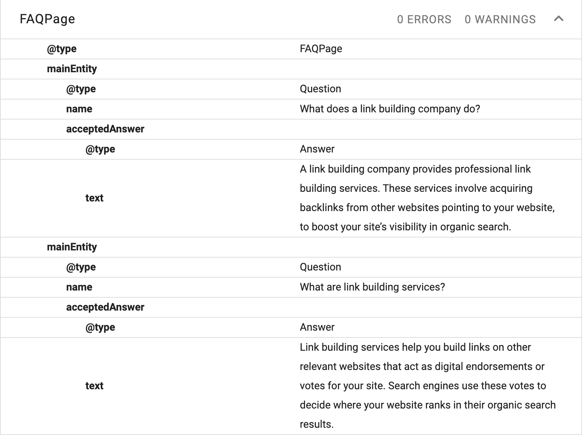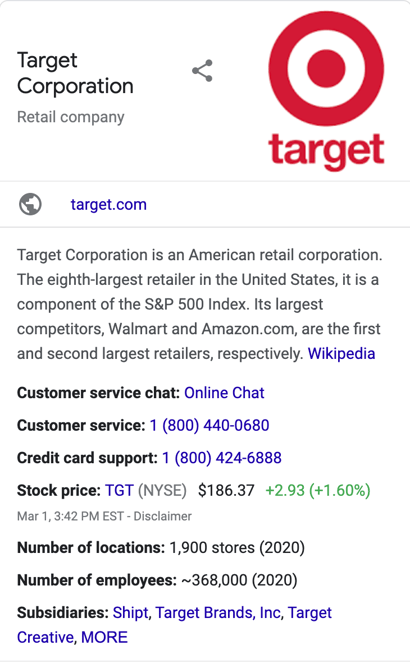Google Authorship & Author Reputation for SEO
Even though Google Authorship is a thing of the past, there are still ways to build up your Author Rank. Authorship was a program that helped verify well-established authors by showcasing their credentials alongside their article on the search engine result pages.
Table of Contents
How To Build Author Rank Now That Google Authorship Is GoneHistory of Google Authorship
How Is E-A-T Still Relevant Now That Authorship Is Gone?
Why You Should Still Focus on Author Authority
Author Reputation
How to Build Author Rank
Ways Authors Can Boost Their Site’s SEO
Google Knowledge Graph
How To Build Author Rank Now That Google Authorship Is Gone
Google decided to end the Google Authorship program in August of 2014 because it was associated with “low adoption rates by webmaster and authors and low value for searchers.” But what was Google Authorship and why should you care? Let’s take a closer look.
History of Google Authorship
Google Authorship was a program created in 2007 by Google to help verify well-recognized authors. This made it easier for Google to allocate other work published by the same author and give them the recognition they deserved alongside their name on the search engine results page (SERPs) — along with any content that was relevant to the searcher’s request.
To become an author via Google Authorship, individuals had to sign up for a Google+ account. They were advised to add a photo of themselves (preferably a professional headshot) and a byline that matched their profile name.
From there, every time you wrote a new piece of content, you would add a link to that piece in your Google+ profile. Additionally, every time you wrote a new piece of content, you would add a reciprocal link back to your Google+ profile. This was done by adding the “rel=author” tag.
It was then up to the author to create relevant content in their niche that used a variety of organic keywords and links. This was and still is an important step, because this type of content helps to earn links from other expert sites in your field — which can ultimately help increase your site’s E-A-T.
How Is E-A-T Still Relevant Now That Authorship Is Gone?
Even without Google Authorship, it’s still critical for domains to work on their E-A-T. Doing so helps build positive user experiences, which ultimately helps build your site’s SEO.
SEO Keyword Research
Read our comprehensive SEO keyword research guide to learn how you can get your web pages to show up higher in the SERPs.
Link Building Guide
Check out our ultimate link building guide to learn how to earn powerful backlinks to empower your web content in search.
Why You Should Still Focus on Author Authority
Being a reputable and credible author is one thing — proving that you are a reputable and credible author is another. Typically, authors have a personal website showcasing published works, awards, and an “about me” section. But being a popular author on its own won’t establish Author Rank.
Author Reputation
Even though the Google Authorship factor has been sunsetted, authors can still build their online reputation. For example, they could include a photo, an excerpt on who they are, a list of credentials, a list of published works/where to access them, and anything else they feel their audience should know about. Users can evaluate their credentials and determine whether or not they are experienced enough to write about the topic they are searching for.
And although Google has included indicators in their Search Quality Rater Guidelines that would suggest that they’re looking at author authority as an important factor in determining a page’s quality, there’s no evidence so far that an author’s reputation is a direct ranking signal.
How to Build Author Rank
Let’s take a look at what it takes to build Author Rank.
- Ensure that the content you have previously published follows SEO best practices;
- Have an active presence on social media;
- Include links to your social media in your author bio;
- Invest time and money into your website. Make sure it is easily accessible and easy to navigate;
- Make sure all of your best and most resourceful pieces of content all include your personal information (i.e. credentials, contact information, bio, and links to other relevant content);
- Publish content that is relevant to your niche/that you are an expert in;
- Search for more ways to make yourself known. For example, try to participate in more interviews — the more interviews, the more chances you’ll be quoted online;
- Take the time to establish E-A-T.
Ways Authors Can Boost Their Site’s SEO
It’s just as important to build your site’s SEO as it is to build Author Rank. Investing in SEO services is a great option if you feel your site is beyond self repair. In the meantime, working on the following tips are great ways to increase your website’s SEO.
- Become An Online Entity: Authors should aim at becoming a well-known online entity. This can be done by:
- Getting their own Wikipedia page about themselves;
- Providing external citations for any claims or facts they make within their articles;
- Generating content worthy of earning links that point back to their site. If unsure how to do so, investing in link-building services can be beneficial.
- Including various internal links that lead readers to other pages on the site.
- Get Ahead of the Competition: The authors who have evidence to back up any claims made on their website are more appealing than those who don’t. When users see a name they trust along with their information right there on the SERPs (i.e. a doctor or leading expert), they are more inclined to view that information as substantial.
- Increase Your Click-Through Rates: Click-through rate (CTR) refers to the frequency with which internet users click on a particular link or image that takes them to another page or website. Basically, CTR tells you, as the site owner, what portion of people that have viewed your link have actually clicked on it. Creating content that satisfies user intent and answers the questions that searchers have can help you to improve your CTR.
- Use Schema.org to Markup Your Article: Schema.org is a website that “provides a collection of shared vocabularies webmasters can use to mark up their pages in ways that can be understood by the major search engines: Google, Microsoft, Yandex, and Yahoo!”
- It is important to include schema markup in your article because it helps search engines to pull up content that is relevant to the searcher’s query. Investing in content marketing services can help you create content that is true to your niche.

Google Knowledge Graph
By including all of the information mentioned above, it can also help to fuel the fire that is Google’s knowledge graph. A knowledge graph “mainly describes real-world entities and their interrelations, organized in a graph…”
For example, let’s say you Google search “Target.” To the right of the SERPs you will see a graph that provides the searcher with:
- An excerpt on what the corporation “Target” is;
- Contact information for the Target customer service and credit support line;
- Stock information;
- Address of their headquarters and how to contact them;
- Their return policy...
and much more. That square of information is a knowledge graph.

Just because Google no longer has a single program that can help you create a sense of authorship, doesn’t mean that you no longer need to try to establish a reputation. The only thing that has changed is that you now have to do so on your own. By following the above tips on how to build Author Rank, you can increase your reputation as well as your site’s SEO in general.

